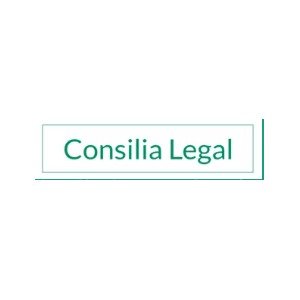Best Labor Law Lawyers in Leeds
Share your needs with us, get contacted by law firms.
Free. Takes 2 min.
List of the best lawyers in Leeds, United Kingdom
About Labor Law in Leeds, United Kingdom:
Labor Law is a prominent area of law in Leeds and across the UK, focusing on the rights, benefits, and obligations of employees and employers. The law here includes regulations defining the legal terms and conditions governing areas such as wages, workplace safety, pensions, and employment contracts. It's crucial to note that this field of law is dynamic, meaning it adapts to societal changes, political influences, and developing industrial relations. It's regulated by various statutes, including the Employment Rights Act 1996, the Equality Act 2010, and the Health and Safety at Work Act 1974.
Why You May Need a Lawyer:
Labor Law can be a complex field requiring professional insight, especially in situations such as unfair dismissal, contract disputes, or discrimination issues. You might also need a lawyer to ensure that the terms of an employment contract meet the necessary requirements, or if you're facing redundancy and need legal advice on your rights and entitlements. In the event of workplace harassment or bullying, a solicitor's intervention can facilitate the resolution. Furthermore, an attorney can help you understand your rights and obligations concerning pension schemes.
Local Laws Overview:
Leeds follows the general UK labor laws. Central to these are Acts like the Employment Rights Act 1996, which offers protection against unfair dismissal and upholds employee rights such as the right to a pay slip and the right to a minimum notice period. Another important legislation is the Equality Act 2010, which advocates for equal treatment in the workplace and prohibits any form of discrimination. The Health and Safety at Work Act 1974 ensures that employers take the necessary measures to safeguard the health and safety of their workers.
Frequently Asked Questions:
What is the difference between unfair and constructive dismissal?
Unfair dismissal is when an employee is dismissed without a fair reason, whereas constructive dismissal occurs when an employee decides to leave the job due to the employer's actions being seriously detrimental or breaching the employment contract.
What are my pregnancy and maternity rights at work?
The UK law provides protection rights for pregnant employees and new mothers, including paid time off for antenatal care, maternity leave, and protection against unfair treatment or discrimination.
If I'm injured at work, what are my legal rights?
If injured while doing your job, you may be entitled to compensation. Under the Health and Safety at Work Act, employers are obligated to ensure the workspace is safe and without risk to health.
What can an employment lawyer do?
An employment lawyer can provide valuable advice, help draft your employment contracts, advise on redundancy issues, guide you through disciplinary, dismissal processes, and represent you in any employment disputes.
Is it illegal to discriminate against workers of a certain age?
The Equality Act 2010 outlawed discrimination on various grounds including age. Therefore, it is illegal for employers to discriminate against employees or job applicants based on their age.
Additional Resources:
Several resources can provide helpful information about Labor Law in Leeds. Citizens Advice can offer advice on a variety of areas, while ACAS (Advisory, Conciliation and Arbitration Service) provides free and impartial information on workplace relations and employment law. The Equality and Human Rights Commission can provide advice on issues related to discrimination.
Next Steps:
If you require legal assistance in the field of Labor Law, you should find a specialist solicitor experienced in dealing with cases similar to yours. Before hiring, ensure you understand their charges and services. You can often start the process by arranging a first consultation to discuss your situation and lay out a course of action. Always, remember to collect and keep any documents or evidence related to your case for later use.
Lawzana helps you find the best lawyers and law firms in Leeds through a curated and pre-screened list of qualified legal professionals. Our platform offers rankings and detailed profiles of attorneys and law firms, allowing you to compare based on practice areas, including Labor Law, experience, and client feedback.
Each profile includes a description of the firm's areas of practice, client reviews, team members and partners, year of establishment, spoken languages, office locations, contact information, social media presence, and any published articles or resources. Most firms on our platform speak English and are experienced in both local and international legal matters.
Get a quote from top-rated law firms in Leeds, United Kingdom — quickly, securely, and without unnecessary hassle.
Disclaimer:
The information provided on this page is for general informational purposes only and does not constitute legal advice. While we strive to ensure the accuracy and relevance of the content, legal information may change over time, and interpretations of the law can vary. You should always consult with a qualified legal professional for advice specific to your situation.
We disclaim all liability for actions taken or not taken based on the content of this page. If you believe any information is incorrect or outdated, please contact us, and we will review and update it where appropriate.













